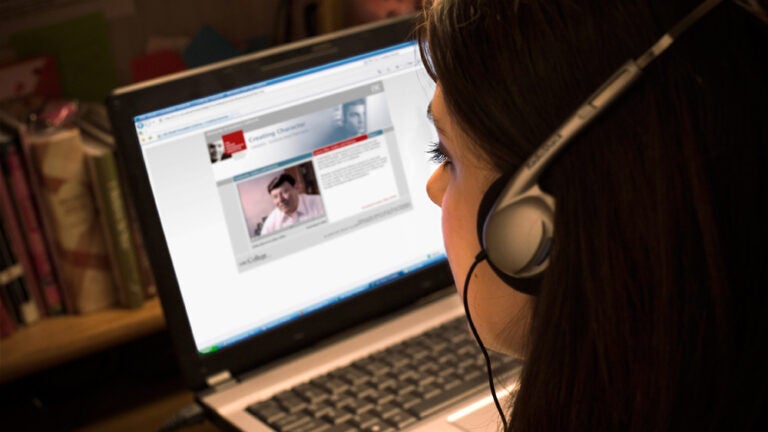
In Perpetuity
While he was in Europe filming Schindler’s List, Steven Spielberg said he spoke with many Holocaust survivors. “It was one of the first moments that made me realize that there were many stories that needed to be told. I wondered how many other people want to speak about their experiences. That’s how the Shoah Foundation began.”
Since 1994, the Shoah Foundation Institute for Visual History and Education has captured 105,000 hours of video testimony of Holocaust survivors and other witnesses. A total of 52,000 videos have been collected from 56 countries and in 32 different languages. In Perpetuity, a ten-minute video about the institute, will debut on HBO on April 21, following a special presentation of Schindler’s List, to commemorate Yom HaShaoh, Holocaust Remembrance Day.
In 2006, the institute moved to the College of Letters, Arts & Sciences at the University of California, and its mission segued to education.
“Now in its 15th year, and nearly 16 years after Steven Spielberg made Schindler’s List, the USC Shoah Foundation Institute continues to build on his dream of preserving and providing educational access to the testimonies of Holocaust eyewitnesses,” said Kim Simon, the institute’s interim executive director.
“What better place to put these testimonies than at a world-class university and in the largest academic unit of that university,” said Howard Gillman, dean of USC College. “Here scholars from across the humanities, social sciences and natural sciences can use these resources to generate innovative research and educational materials.”
The Holocaust was not the end of world genocides. Prejudice, intolerance and bigotry continue to thrive in other parts of the world – Cambodia; Guatemala; Bosnia and Herzgovina; Rwanda; Darfur, Sudan.
“You can’t really say after the Holocaust ‘never again,’ because it happened again, and it keeps happening,” said Karen Jungblut, director of research and documentation at the institute. “It’s really important to expand the archive with new content.” The Shoah Foundation Institute is in the early phases of partnership with an organization in Rwanda – IBUKA – and an organization in Cambodia – the Documentation Center of Cambodia – to begin collecting testimony from survivors of the Rwandan and Cambodian genocides.
The videos have a powerful impact on students of every age and offer a strong educational component.
USC student Darian Lopez said that watching these testimonies makes her want to be a better person. Lopez and other students who hear the personal accounts of Holocaust survivors realize the fragility of life.
Through his video testimony, students hear Holocaust survivor Iurii Pinchuk recall his mother. “I can tell you that she was a great mother. Her fate … was just not to be.” He was only 11.
“They are just regular human beings who were thrust into the worst of circumstances. Even if I only wanted to hear a five-minute video, more often than not, I would end up watching their entire three-hour story. I needed to hear the rest of the story,” explained USC student Brandon Rose.
Teachers play a vital role in educating young people about the Holocaust by integrating the video testimony into their curricula. Students hear survivors’ firsthand accounts and can apply this experience to the world today. A teacher in a classroom in Upland, Calif., for example, introduces the videos to her students: “We are going to be listening to individual stories because history happens to individuals,” she said. Later in the class, she asks her students to consider their reactions to intolerance and injustice. “There will be occasions when we have to make the choice. Will we be bystanders or do we have to act?”
“I have seen young people, young students who have seen these testimonies. It does change them,” Spielberg said.
Schindler’s List debuts on HBO on April 21 at 9 p.m. EST, and In Perpetuity: The Story of the USC Shoah Foundation Institute airs at 12:15 a.m. EST on the same channel. Viewers are encouraged to check their local listings to determine air times in their areas.
To learn more about the institute, please visit www.college.usc.edu/vhi.
Read more articles from USC College Magazine’s Spring/Summer 2009 issue.